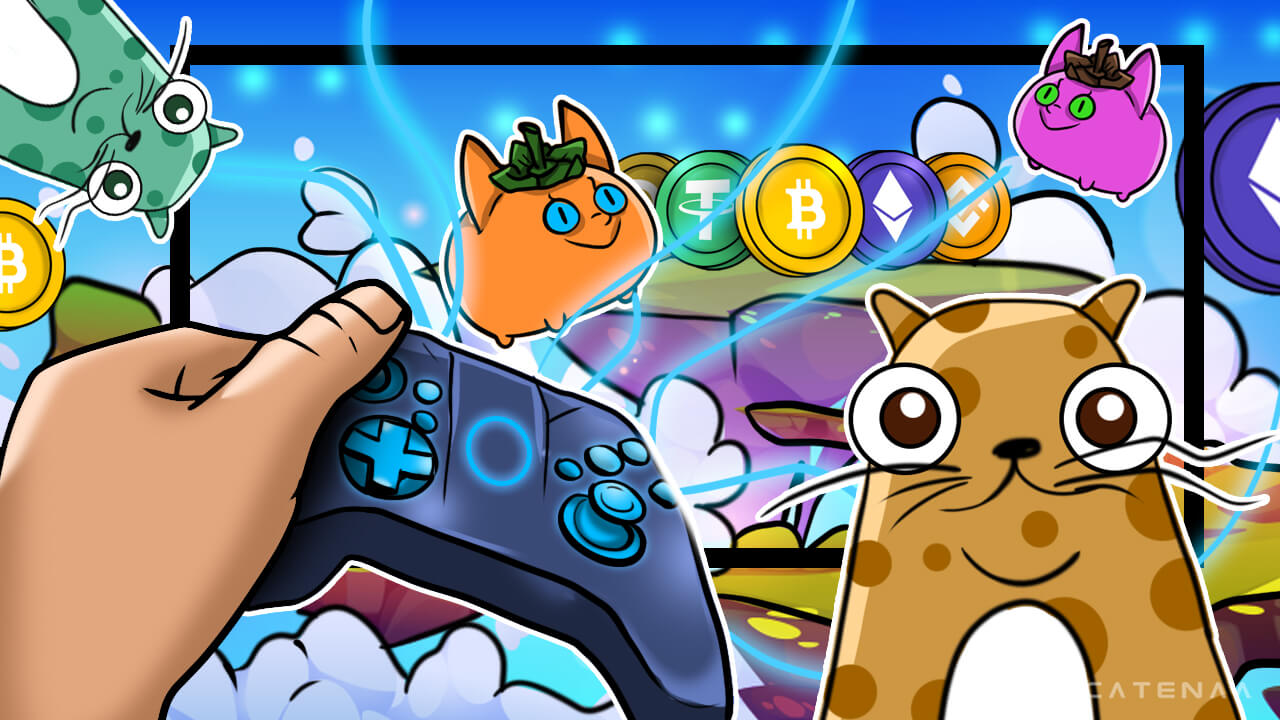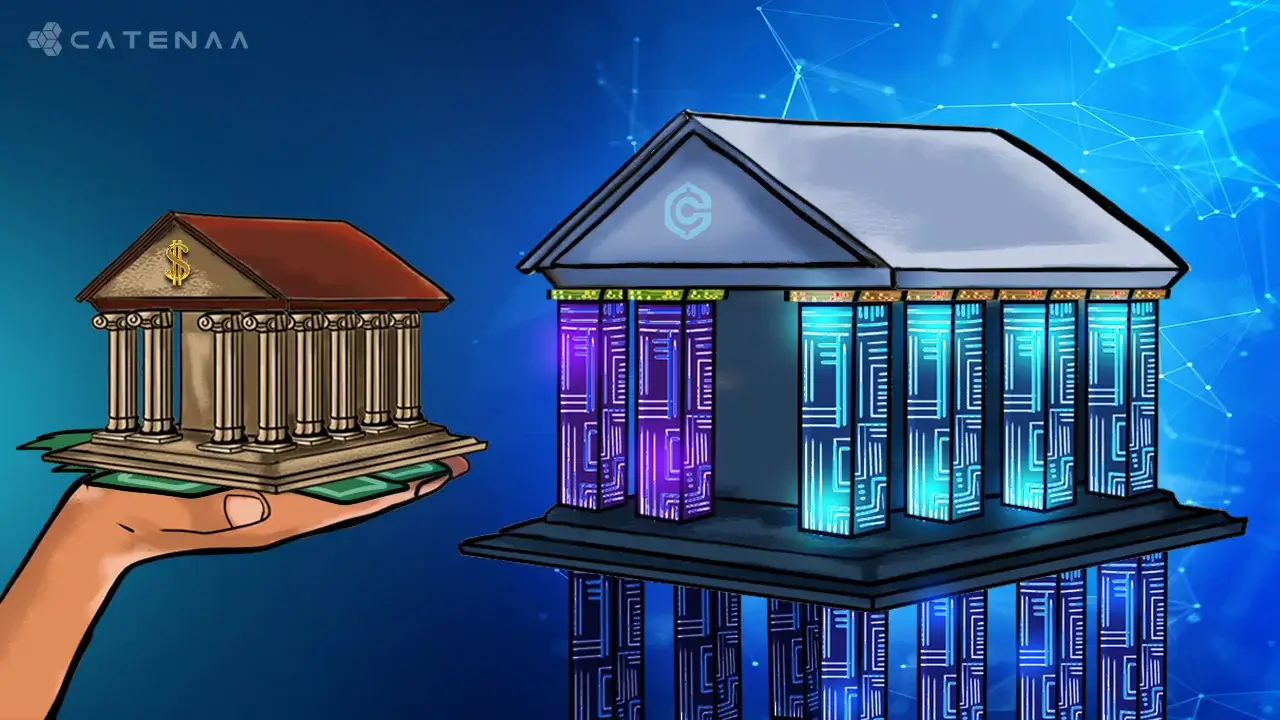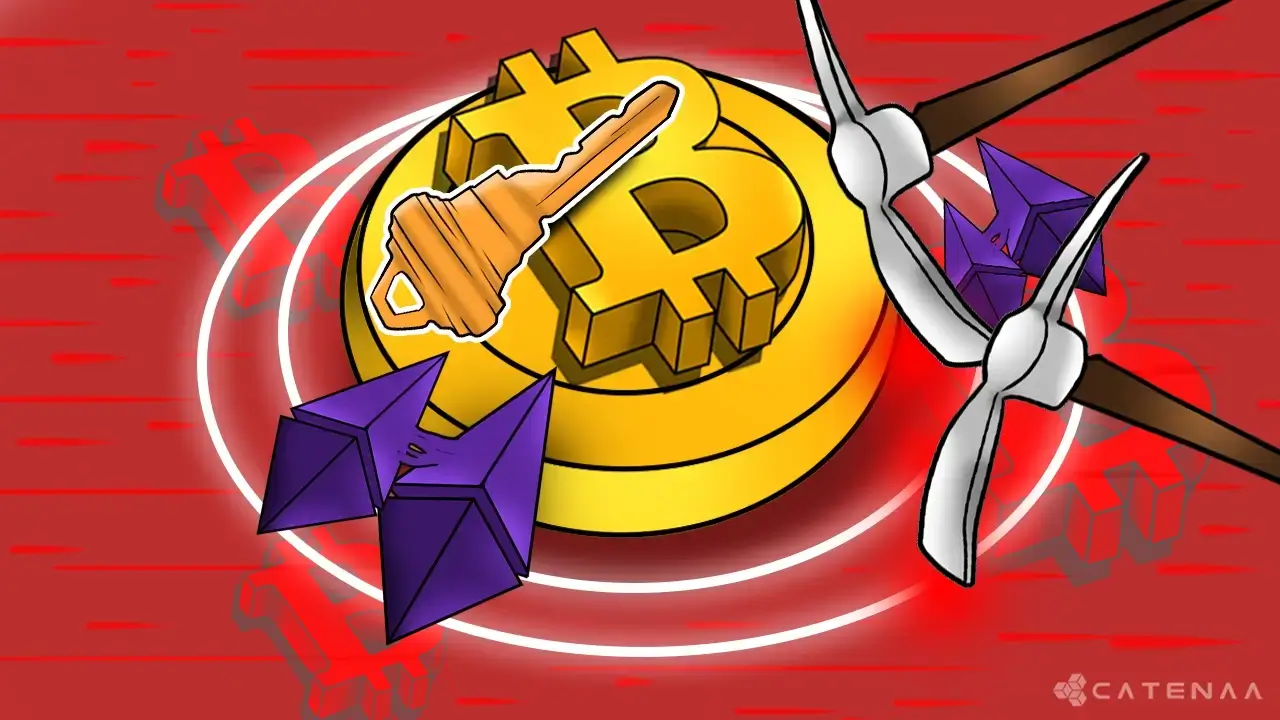Decentralized, distributed, and immutable… are probably not the first three words that pop into your head when you think about video games, but they are the core fundamentals of Blockchain. Blockchain is a decentralized, distributed, and immutable digital ledger system. It is the underlying technology behind cryptocurrencies and NFTs (Non-fungible tokens).
So, what does a digital ledger have to do with gaming? In this article, we will dive into the world of blockchain gaming, looking at the value that blockchain adds to gaming and exploring its future potential.
What are Blockchain Games, and How are They Different from Traditional Video Games?
Games built on top of blockchains are referred to as Blockchain Games. NFTs and cryptocurrencies are heavily integrated, and a crypto wallet is a must to play these games. Most of these games will have their native cryptocurrency, which is used to purchase in-game assets. Virtual assets (Mainly NFTs) and in-game currency are secured and managed by blockchain technology. The majority of these games run on decentralized networks like Ethereum, giving users complete ownership and control over their virtual assets. It is important to note that blockchain games will not significantly improve the graphics or the quality of the game, but they will open up new avenues to trade and monetize in-game assets.
Blockchain gaming has given birth to a new genre of gaming known as Play-To-Earn. In these games, players earn cryptocurrency as rewards for playing the game, which can, in turn, be converted to fiat currency or can be used to buy in-game items.
Another important characteristic of blockchain games is the presence of a governance token in addition to the in-game currency. These governance tokens will be used to vote and approve changes to the way the game is run and controlled.1
When compared to traditional video games, Blockchain games differ in the following ways:
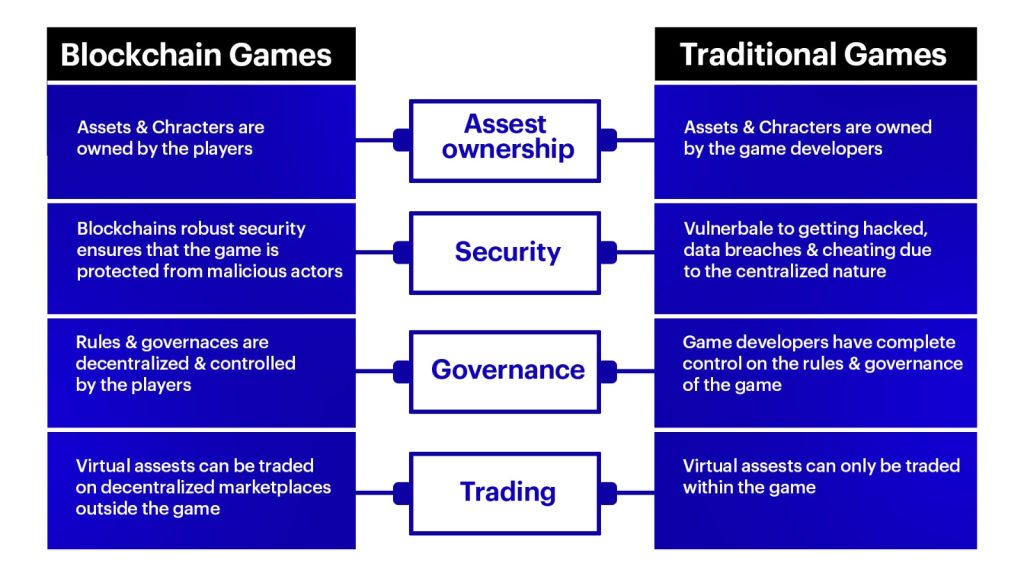
Popular Examples of Blockchain Games
- CryptoKitties
Crytokitties was the first widely recognized blockchain game. The Ethereum-based collectible game was introduced in 2017 and played a major role in increasing the popularity of NFTs.
In CryptoKitties, players can collect and trade unique digital cats, known as CryptoKitties. Each CryptoKitty is represented by a unique Ethereum blockchain-based token, making them one-of-a-kind and indestructible. Players can breed their CryptoKitties to create new, unique offspring, and they can also buy, sell, and trade CryptoKitties with other players on the platform. - Axie Infinity
Axie Infinity is considered one of the best examples of a play-to-earn game. Released in the year 2018, players can breed, raise, trade, and battle creatures called Axies, which are uniquely represented by NFTs. The game also features a variety of challenges and tournaments, where players can earn rewards in the form of the game’s cryptocurrency, called SLP (smooth love potion). These rewards can then be traded or sold on decentralized exchanges for other cryptocurrencies.
Built on an Ethereum sidechain known as Ronin, Axie Infinity has received positive reviews for its engaging gameplay, innovative use of blockchain technology, and vibrant community. In March of 2022, the game was unfortunately hacked for over 600 million dollars, leaving a bad aftertaste in the community. - Alien worlds
Released in the latter part of 2020, Alien World is a sci-fi exploratory and play-to-earn game on WAX (Worldwide Asset eXchange), Binance Smart Chain, and Ethereum. Players can explore, mine, and battle in a virtual universe that is divided into different planets. Each planet has its unique ecosystem, resources, and challenges. Players can collect and trade a variety of in-game items, such as weapons, tools, and creatures. The game also features a decentralized governance system, where players can propose and vote on changes to the game’s rules and features. This allows the game’s community to impact the game’s direction directly and ensures that it remains relevant and engaging over time.
The in-game token TLM (Trillium) can be earned through various rewards and can be traded or sold on decentralized exchanges for other cryptocurrencies. Owing to innovative and engaging gameplay, Alien Worlds is currently the number-ranked blockchain game according to DappRadar. 2
The Pros and Cons
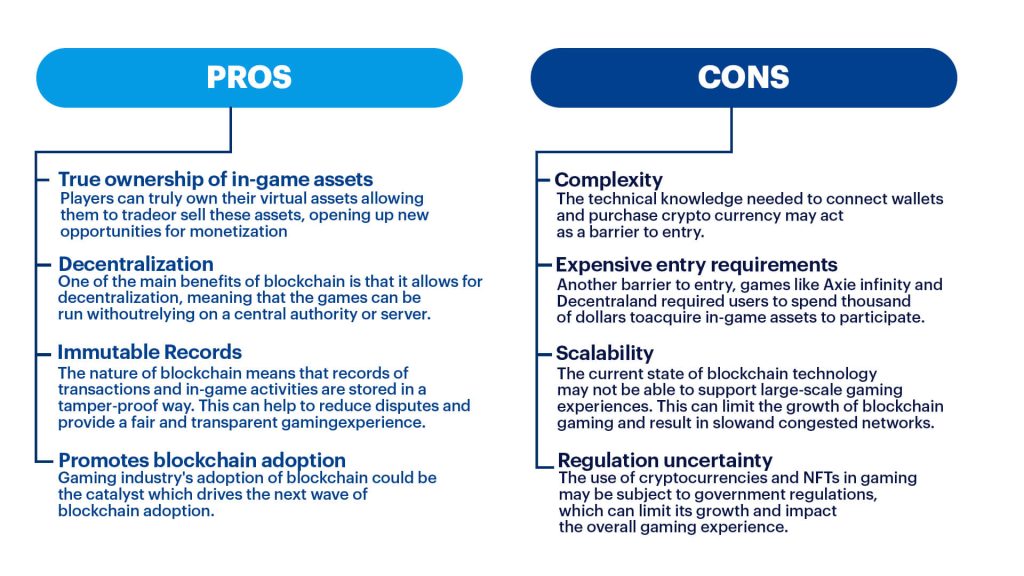
What to Consider Before Choosing a Gaming Platform?
When selecting a blockchain gaming platform, consider the following key factors:
- Cost – Take into account the cost of using the platform, including transaction fees, gas fees, and any other associated costs, to determine the platform’s cost-effectiveness.
- Scalability – Consider the platform’s ability to handle a large number of users and transactions, as well as support high-quality graphics and gameplay.
- User Experience – Look for a platform with a user-friendly and intuitive interface that is accessible to a wide range of players.
- Community – The platform’s community and level of engagement can provide valuable support and insights. Therefore, it is essential to consider the platform’s community and its level of engagement when making that crucial decision.
- Security – Ensure that the platform has strong security measures, such as encryption, smart contract security, and secure storage of private keys, to protect your virtual assets and transactions.
- Regulation – Consider the platform’s compliance with relevant regulations and its stance on data privacy and security, as these factors can impact the security and privacy of the platform.
Remember, the best blockchain gaming platform for you will depend on your specific goals and requirements, so prioritize the factors most important to you.
The Future of the Market
The future is certainly looking bright. The global Blockchain gaming market is projected to grow from $4.6 billion to $65.7 billion by 2027 at a CAGR (compound Annual Growth Rate) of 70.3% 3.
Experts believe that in the near future, new game types such as Social to Earn, Watch to Earn, and Race to Earn will be launched. Decentralized Autonomous Organizations, more commonly known as DAOs, will take a pivotal role in making blockchain games self-governing.
As the metaverse ecosystem matures, blockchain gaming is expected to play a pivotal role in it. The global metaverse market is expected to surpass $900 billion by 2030 4 and as a result of this, blockchain gaming is also poised for significant growth.
The future of blockchain-based video games is full of potential, however, there is still a long way to go before it becomes mainstream. Nevertheless, it will be interesting to see how the technology continues to evolve and shape the gaming industry.
- appinventiv.com: www.appinventiv.com[↩]
- builtin.com: https://builtin.com/gaming/blockchain-games[↩]
- marketsandmarkets.com: www.marketsandmarkets.com[↩]
- Statista: www.statista.com[↩]
